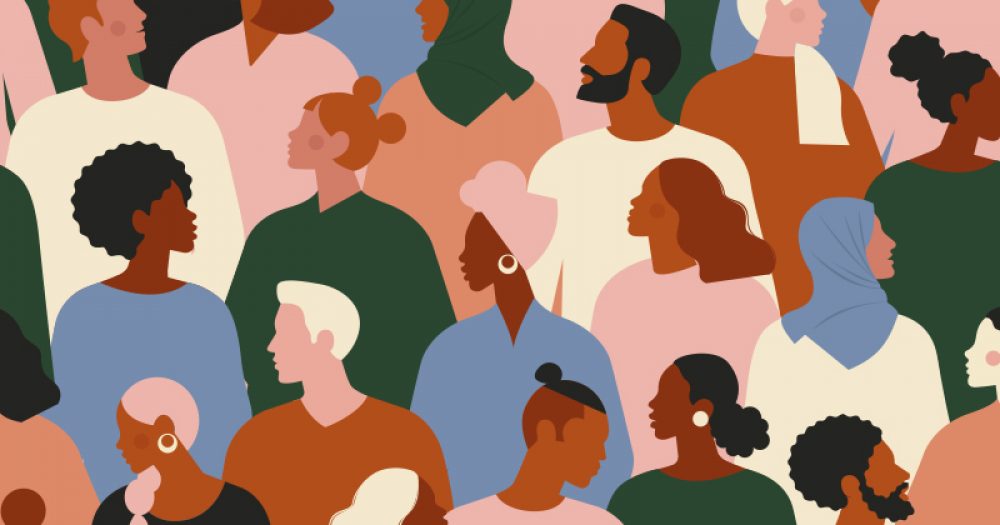FE has some of the most diverse classrooms around and should be setting an example when it comes to representation, writes Teresa Carroll
Teaching and learning at its best should reflect the diversity of our learners’ worlds.
Covid-19 has brought into focus the disparity in learners’ experiences from a social and economic perspective. Meanwhile, movements such as Black Lives Matter have highlighted that systems in Britain (sometimes unintentionally) can default to a white, middle-class, heterosexual, ableist norm that fails to acknowledge the full range of our society.
We want learners in FE to see themselves in the curriculum and in the workforce too. Learning is about enriching lives so that learners can become the people they want to be. A learning experience underpinned by “if you can see it, you can be it” makes this much more likely.
That means that we want our learners to be taught more often by people who look and sound like them. But our most recent staff individualised record report, which brought together findings from 186 FE providers, outlines that the 84 per cent of the staff workforce identify as white British; 81 per cent report having no disability and 81 per cent identify as heterosexual.
Meanwhile, the workforce is predominantly female, at 64 per cent, and the average age is 46 years old.
That’s before we even consider FE staff who experience intersectionality of identities, such as being both black and disabled.
Only by fully acknowledging and embracing diversity in all its forms can the FE sector go some way to narrowing the achievement gap in the classroom.
FE is especially well placed to do this, as many colleges have some of the most diverse classrooms in the education system – across age, socio-economic background and ethnicity.
According to the Association of Colleges, 16 per cent of 16- to 18-year-olds claimed free school meals at age 15 last year, compared with just eight per cent in maintained school and academy sixth forms.
An inclusive learning experience is one that is emotionally nurturing
Meanwhile, about 17 per cent of college learners have a learning difficulty, disability or difference, compared with about 15 per cent in schools.
We also know that more than 30 per cent of people who enter the prison system have a learning disability or difficulty. This isn’t good enough.
Much more needs to be done. For instance, in science, technology, engineering and maths (STEM), there is evidence that inequity begins early and becomes more pronounced along the educational journey. Male learners outnumber female learners in STEM apprenticeships by 9:1.
Meanwhile, around 27 per cent of young carers experience educational difficulties, including disrupted school or college attendance ̶ a figure that rises to 40 per cent where children care for a relative with drug or alcohol problems.
At the other end of the age spectrum, 99,000 college students are aged 60 and over and we want to make sure that there are opportunities to harness their skills. What are we doing to support them in their next career move?
Finally, almost one-third of adults in FE colleges are from an ethnic minority background, and about a quarter of students aged 16 to 18 are.
So serious work still needs to be done to help teachers challenge stereotypes and avoid reinforcing inequity.
An inclusive learning experience is one that is emotionally nurturing, where learners feel they belong and are valued for who they are, including through the way we listen to them.
We want teaching and learning to be a truly positive experience where learners and staff recognise that learning is about so much more than qualification attainment.
A curriculum that reflects the diversity of modern Britain, and particularly draws on theory and practice from a diverse range of academics, will go some way to engage learners with content that is relevant to their lives.
And remember, it’s important to remember that every learner is different and learns differently. Get to know your learners ̶ if we take the time to listen we have so much to learn from them.









I’m struggling to see what this piece was trying to say. My summary was: FE is already much more diverse than the general population, but somehow that still isn’t enough? What does this ‘Head of Inclusion’ have to say about White working class males, the group that is most excluded, least successful, fallen furthest behind? Why is everything to do with inclusion so poor, vapid, even deceitful of the real problems, wilfully refusing to acknowledge or tackle them? FE is a sector where the Leftwingers and Inclusionmongers are omnipresent, yet it isn’t some paradise, it’s a sad wasteland of mistrust and bad faith.